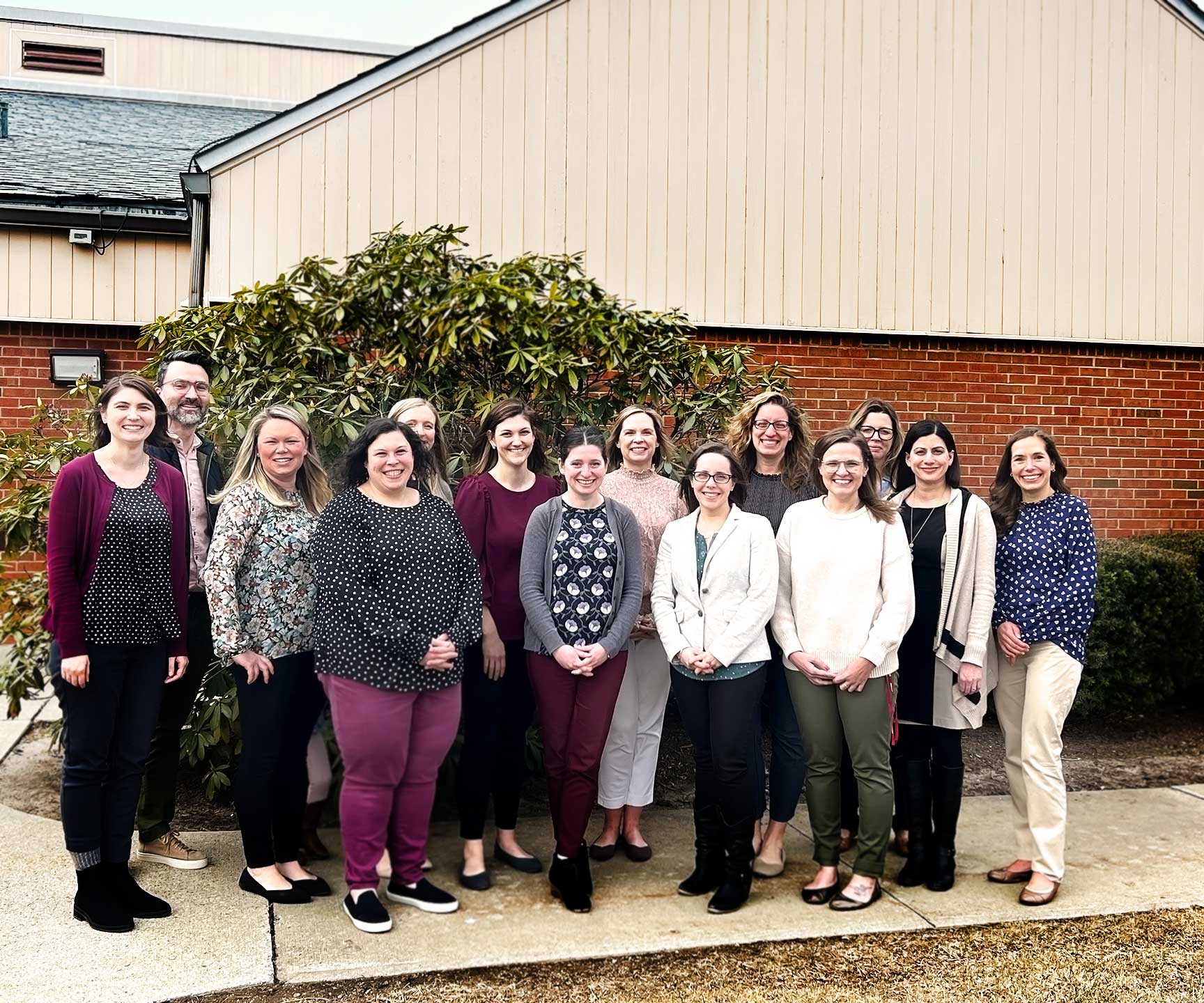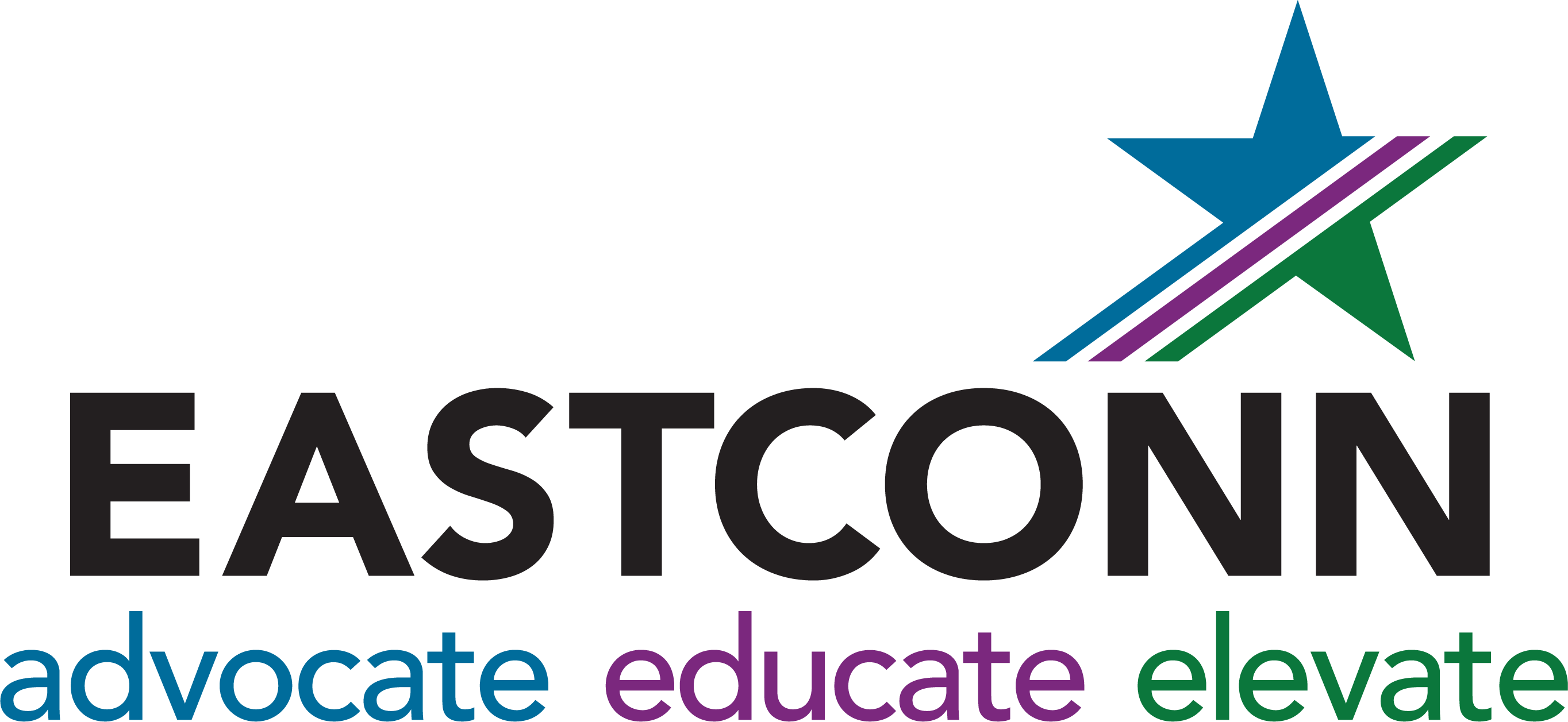Psychological & Behavioral Consultation
EASTCONN’s Psychological & Behavioral Consultation department offers assessment, consultation, and professional development in a variety of areas to support districts, programs, and individual student needs in maximizing student academic and behavioral outcomes.
Services are all characterized by the use of a consultative model of service delivery and by a commitment to using data-driven assessment and intervention to provide an effective continuum of support for students, teachers, teams, programs, and systems.
Cultivating Trauma-Sensitive Classroom Practices: A Resilience-Focused Professional Learning Webinar for All Educators
- Learn about trauma-sensitive practices in schools, and why they are so important for students now
- Be exposed to three selected daily habits educators can use to build resilience for all students
- Identify at least one actionable, observable next step for your own practice, or for leading your school/district
For Companion Notes and more information, visit: Cultivating Trauma-Sensitive Classroom Practices: A Resilience-Focused Professional Learning Webinar for All Educators
Supporting Special Populations: Building Relationships and Maximizing Instruction
In an effort to provide ongoing support for educators, EASTCONN’s Psychological and Behavioral Consultation team has developed a series of free webinars focusing on professional development for paraeducators. From “Every Kid Needs a Champion: Building Relationships with Challenging Students” to “Turning Evidence-Based Practices into Everyday Routines: Working Smarter, Not Harder”, these - and other - recorded webinars, materials and worksheets serve as valuable resources during, and beyond, the pandemic.
A Webinar Series for Para Educators during COVID-19Helping Students Stay on Track: Managing Attention & Executive Functioning Difficulties During Distance Learning
Research has repeatedly shown that increased stress and multi-tasking make it difficult for all individuals to use executive functioning skills effectively. Designed for educators, these strategies can help the process, but before using them, please keep in mind that everyone we are working with (including the reader) is likely under a great deal of stress, facing uncertainty, and trying to manage many competing demands in new ways. As much as possible, consider incorporating these strategies into the materials/lessons being sent home instead of relying on parents and/or caregivers to implement strategies on their own.
Helping Students Stay on Track
Implementing Multi-Tiered Systems of Support to Improve Student Attendance
Child-motivated refusal to attend school or difficulty remaining in classes affects between 5-28% of students and has a significant correlation with a variety of negative outcomes including incarceration, drop out, poverty, and reduced social functioning, among other issues (Kearney, 2002).
School-based MTSS/MTBF teams, who are experts in utilizing systems, data, and practices to guide decision making, are in a unique position to promote improved outcomes for the more than 1 in 10 students in the United States (Chang, Bauer, & Byrnes, 2018) who are chronically absent.
This FREE comprehensive website includes tools for school-based personnel to proactively address this critical issue affecting our nation’s public schools including:
- Information on risk/protective factors associated with chronic absenteeism and school refusal behavior
- Strategies & tools to identify patterns and trends in attendance data to guide function-based interventions
- Comprehensive implementation guides for targeted function-based interventions to support students at risk
- Assessment and intervention resources to identify the function of school refusal behavior
Fostering Trauma Sensitive Practices in Schools - The Webinar
This six-part webinar includes an overview of foundational knowledge in the area of trauma and describes a variety of trauma sensitive practices that can be implemented in school settings to support student success. Participants will learn the definition, prevalence, and potential impact of trauma in children, become familiar with the traumatic stress response cycle, and learn how to create trauma sensitive environments that promote resilience via use of evidence-based approaches with students across the stages of the trauma stress response cycle.
Psychology Training Consortium for Doctoral Students
EASTCONN PBC offers practicum and internship training opportunities for doctoral students in school psychology. EASTCONN serves as a training site as part of the Connecticut Psychology Consortium (CPC). CPC provides interns with a planned, programmed sequence of training experiences developed with the primary purpose of ensuring breadth and quality of training, meeting the needs of the doctoral interns, and providing an extension of education and supervised training from the university program.
CPC represents a collaboration across four Connecticut organizations serving students and schools:
- one private, non-profit human service and educational organization (Aspire Living & Learning)
- one public school district (Darien Public Schools)
- two regional educational service centers (RESCs) (CREC and EASTCONN)
CPC was the 2023 recipient of the APA Division 16 Grant Program for School Psychology Internships (GPSPI).
To inquire about practicum training experiences, please contact Dr. Jacquelyn DuBois, Director of Training, at
For more information please contact:








